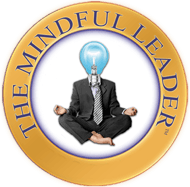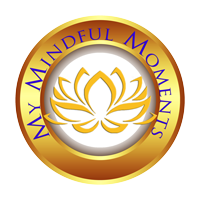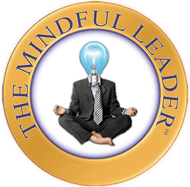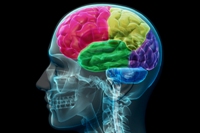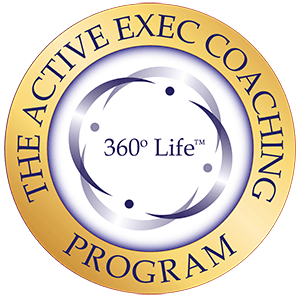One aspect of feeling amazing is taking good care of your physical body. This sounds self-explanatory enough, but it can be a challenge for many people, especially if you are sensitive or empathic to the energies around you. Sometimes this sensitivity can create a barrier in the form of all sorts of things: weight gain, self-sabotage, procrastination, avoidance, overworking, a lack of balance, addiction, and so on. This is essentially our physical body’s response to us needing protection from something or another in our reality, but it typically doesn’t help. Rather than allowing your body’s long-term responses and coping mechanisms to run on autopilot, keeping yourself nourished and healthy is an excellent way of maintaining balance and control over your energy levels, your focus, and your level of clarity. The way you care for yourself will vary for everyone, but there are some basic ideas that may serve you well across the board, so please join me as we further explore this topic of nourishing your physical body.
Your physical health has a direct effect on your emotional, mental, and spiritual wellbeing, whether you believe it does or not. However, it becomes easier and easier to notice that this is the case the healthier you get, so eating healthy, fresh, whole foods and getting at least 20-30 minutes of exercise a day can have an incredible impact on your ability to focus, not to mention on your body’s ability to function properly. When I talk about your body functioning properly, this includes the emotional aspects of your being. Your emotions are your body’s way of pointing you in the right direction, an indication system, and they tie directly into your intuition. Of course these systems are developed over time through subconscious conditioning, whether that be you conditioning yourself or other people around you conditioning you without even realizing it. This is why it seems so elusive—these are intangible ideas that not everyone is or becomes familiar with until young adulthood or later, and the revelations themselves can be life-altering. I personally have likened it to stepping into another dimension; these so-called dimensions are not physical experiences, although there can be physical symptoms. More often, they are strictly internal, emotional experiences and a breakthrough happens that rattles your perception of reality. The physical manifestation shows up later, as an echo of your inner work.
The more healthy and nurtured you are on all levels, the less likely life changes and circumstantial challenges are to throw you into a downward spiral, and once that kind of thinking takes hold and gathers momentum, it becomes more and more difficult to break free from. This is why mindfulness is so important for your health; being self-aware in the moment, being able to catch yourself when you’re in the midst of it and acknowledge how you feel, offers you the unique opportunity for growth and releasing things that no longer serve you. To be perfectly honest, physical exercise is a great starting point because it provides a number of benefits without you necessarily having to think too much about it, especially if inner work still feels daunting to you, which can happen if you’ve never gone within before.
So, what are some ways in which you can make sure that your physical body is nurtured and valued the way your divine vessel deserves to be? Here are a few things to try as well as to keep in mind as you work toward the best version of yourself that you can be.
- Try different types of foods and pay attention to how they make your body feel. Does the meal make you feel sluggish? Tired? Like you want to go into a food coma? Or does it make you feel energized? Alive? Happy? The types of food don’t really matter much, although the majority of people will do much better without fast food and TV dinners. Because all bodies are a little different, you can customize what you eat to fit exactly what you need for your best overall health.
- Make small, daily changes. Any time you’re changing your diet or daily routine, it can be extremely overwhelming to change a bunch of things at once, so try one thing at a time, and if you enjoy it and it works, then you can choose to incorporate that into your daily routine. If you don’t enjoy it, you can explore other options. While some people might enjoy walking or yoga, others may enjoy swimming or lifting weights better. This has to be at your discretion because you’re the only person who can determine which activity you enjoy most and are most likely to continue in whatever circumstances you may find yourself.
- Don’t use your circumstances as an excuse. No matter what type of situation you find yourself in, self-care must take priority, and sometimes this may require you to get a little creative. If there’s only one option for exercise, for example, it is still your decision whether to do it or not. If you don’t, that isn’t life’s decision… that choice belongs to you, and only you. If there are limited options as far as healthy food is concerned, then you can choose to work with it or not. Either way, your physical body will be a direct manifestation and reflection of your choices, and this is true whether we want to admit it to ourselves or not.
- Add a little variety! If you find yourself getting bored or frustrated with your current daily routine, replace one thing you don’t enjoy with something that you do. This could be related to exercise, meditation, food, the way you prepare food, where you work out, or just doing something once a week to add variety such as going on a hike. No matter the case, making one small change is always doable and much less daunting than trying to rearrange your entire lifestyle all at once. There is a process to it, and how else can you know exactly what’s working for your benefit and what isn’t? Variety is also good for some people but not structured enough for others; it’s important to stay aware of what your body is communicating with you.
- Maintain your mindfulness practice and your ability to be aware in the moment. This can be done fairly easily by meditating, and meditation can be the gateway to becoming aware in each moment and being present in the now. Of course you can always choose not to meditate but rather to simply be more aware, but meditation makes this practice much easier and more natural to fall into, not to mention that it strengthens your ability to be mindful and present no matter what. For many people, meditating for 10-20 minutes a day can mean the difference between wellbeing and misery, so I highly recommend that you try it for a week and see how you like it. The beauty of it is that it isn’t difficult and there is no right or wrong way to meditate; you can do this in whatever way suits you and your lifestyle best, and make changes as needed depending on what works specifically and uniquely for you.
- Get plenty of rest when you need it. If you find yourself feeling sluggish, drained, stressed, tired, or unable to focus, forcing or struggling your way through things isn’t going to do much good. You may be able to finish whatever it is you’re obligated to finish, but your level of clarity will be significantly lower and you are likely to find that your work suffers for it. Your sleep patterns and sleep schedules are important, and your body and mind absolutely need to be able to recharge on a regular basis. If you find yourself feeling burnt out on your task, you can choose to either change pace for a little while and do something different (if you were doing something that requires a lot of mental focus and clarity, then it might be time to switch to something physical for an hour or so before getting back to your previous task), or you can choose to take a short nap. Naps are not just for babies and toddlers; as a matter of fact, naps and shorter sleep cycles are actually more beneficial for some people than a solid eight hours of sleep, so pay attention to how you feel throughout the day and discern whether a nap might be the right course of action. Set an alarm, and get back to work after you’ve gotten a little much-needed rest.
You can probably tell that this is all based on paying attention and doing the inner work you need to do in order to thrive and be healthy on all levels. The most important thing to remember is that there are no right or wrong answers… only the solutions that best fit you and your unique body, personality, lifestyle, and emotional state. It is true that if you’ve never attempted anything like this—changing your life—that you may get a little bit of a rocky start, and this becomes especially true if you’re battling any kind of addiction or subconsciously conditioned emotional ailment such as CPTSD from narcissistic abuse, depression, anxiety, and so on. If this sounds like you, then you may feel like you’re forcing yourself at first, but remember that it will be worth it in the long run, and all that protesting is coming from your ego or false self. If you make the choice to ignore that part, you may find yourself becoming more and more of who you truly are, and you may even find that it begins to feel effortless after a very short while.
Lastly, if you’re making changes such as these and slip from time to time, don’t get stuck or trapped in a state of beating yourself up or talking down to yourself. This only increases the ego’s, “Haha, I told you so!” attitude and discourages you from continuing to move forward. However, if you don’t make it as big a deal as the ego thinks and you don’t allow self-deprecating thoughts to seep into your mind and emotional system, then you will be much more likely to try again and keep going. You may feel like you’re taking one step forward and two steps back at times, but what about those other times when you take a leap forward and only stumble back a step or two as you land? You should give yourself much more credit for those times and pay less attention to the overall crookedness or indirectness of your life’s journey.
I hope that this article has helped to shed some light on just how important it is to take care of your physical vessel, and that you’ll join us again next week for more on nurturing yourself on all levels for optimal health.
For more information about the Mindfulness Movement or the International Mindfulness Federation, please visit:
http://executivecoachinguniversity.com/mindfulness-movement


